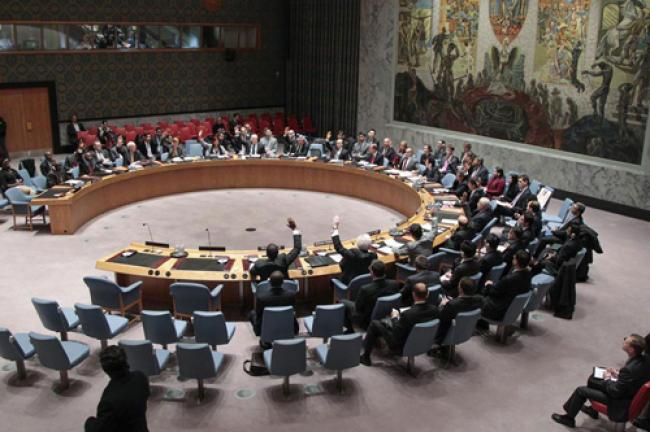As requested by Secretary-General Ban Ki-moon, the Council unanimously approved a temporary increase in the strength of the UN Mission in South Sudan (UNMISS) to up to 12,500 military and 1,323 police from a current combined strength of some 7,000, through the transfer of units if necessary from other UN forces in the Democratic Republic of Congo (DRC), Darfur, Abyei, Côte d’Ivoire and Liberia.
In a resolution passed under Chapter VII of the UN Charter, which authorizes the use of force, the 15-member Council demanded an immediate cessation of hostilities and the immediate opening of a dialogue between the rival factions, and condemned the fighting and violence targeted against civilians and specific ethnic and other communities as well as attacks and threats against UNMISS.
Tensions within South Sudan, the world’s youngest country which only gained independence in 2011 after seceding from Sudan, burst out into open conflict on 15 December when President Salva Kiir's Government said soldiers loyal to former deputy president Riek Machar, dismissed in July, launched an attempted coup. Kiir belongs to the Dinka ethnic group and Machar to the Lou Nuer.
Last week, 2,000 heavily armed assailants stormed an UNMISS base in Akobo, in restive Jonglei state, in a brazen attack that left some 20 Dinka civilians dead as well as two UN peacekeepers, with a third wounded, and which Tuesday’s resolution condemned in the strongest terms.
“I have consistently called on President Salva Kiir and opposition political leaders to come to the table and find a political way out of this crisis,” Ban told the Council at its meeting, citing reports of ethnically targeted violence, other extra-judicial killings and mass graves. “Whatever the differences, nothing can justify the violence that has engulfed their young nation.”
He stressed that there could be no military solution to the conflict, reiterating his determination to ensure that UNMISS has the means to carry out its central task of protecting civilians. “Attacks on civilians and the UN peacekeepers must cease immediately,” he said. “The United Nations will investigate reports of these incidents and of grave human rights violations and crimes against humanity. Those responsible will be held personally accountable. They should know the world is watching.”
The Council resolution demanded that all parties cooperate fully with UNMISS as it implements its mandate, in particular the protection of civilians, and stressed that efforts to undermine the mission’s ability to implement its mandate and attacks on UN personnel will not be tolerated.
Both in his address to the Council and at a later news conference Ban warned that even with ongoing support, the strengthening of UNMISS’s protective capabilities will not happen overnight.
“And even with additional capabilities, we will not be able to protect every civilian in need in South Sudan,” he said. “The parties are responsible for ending the conflict. This is a political crisis which requires a peaceful, political solution. In this season of peace, I urge the leaders of South Sudan to act for peace.
“Stop the violence. Start the dialogue. Save your proud and newly independent country. There is no time to lose.”
At a news conference Tuesday in Juba, the South Sudanese capital, Ban’s Special representative to the country Hilde Johnson pledged, as the Secretary-General himself has repeatedly done, that the UN will remain by the side of South Sudan’s people and that she hoped extra military assets including helicopters will soon arrive to increase UNMISS’s capabilities.
“I want to make it very clear that, although non-critical staff of the United Nations have relocated to Entebbe in Uganda, we are also increasing our staff in critical security related areas and we are reinforcing the bases that need reinforcement,” Johnson said.
She said that UNMISS was providing, as part of its protection-of-civilians mandate, shelter to approximately 45,000 people who have fled to UN compounds.
“We remain, we are undeterred and we will continue to implement our mandate. Now, the presence of the United Nations in South Sudan is greater than ever,” she said.
Security Council members voting to authorize almost doubling the UN peacekeeping force in South Sudan to nearly 14,000. UN Photo/Paulo Filgueiras
